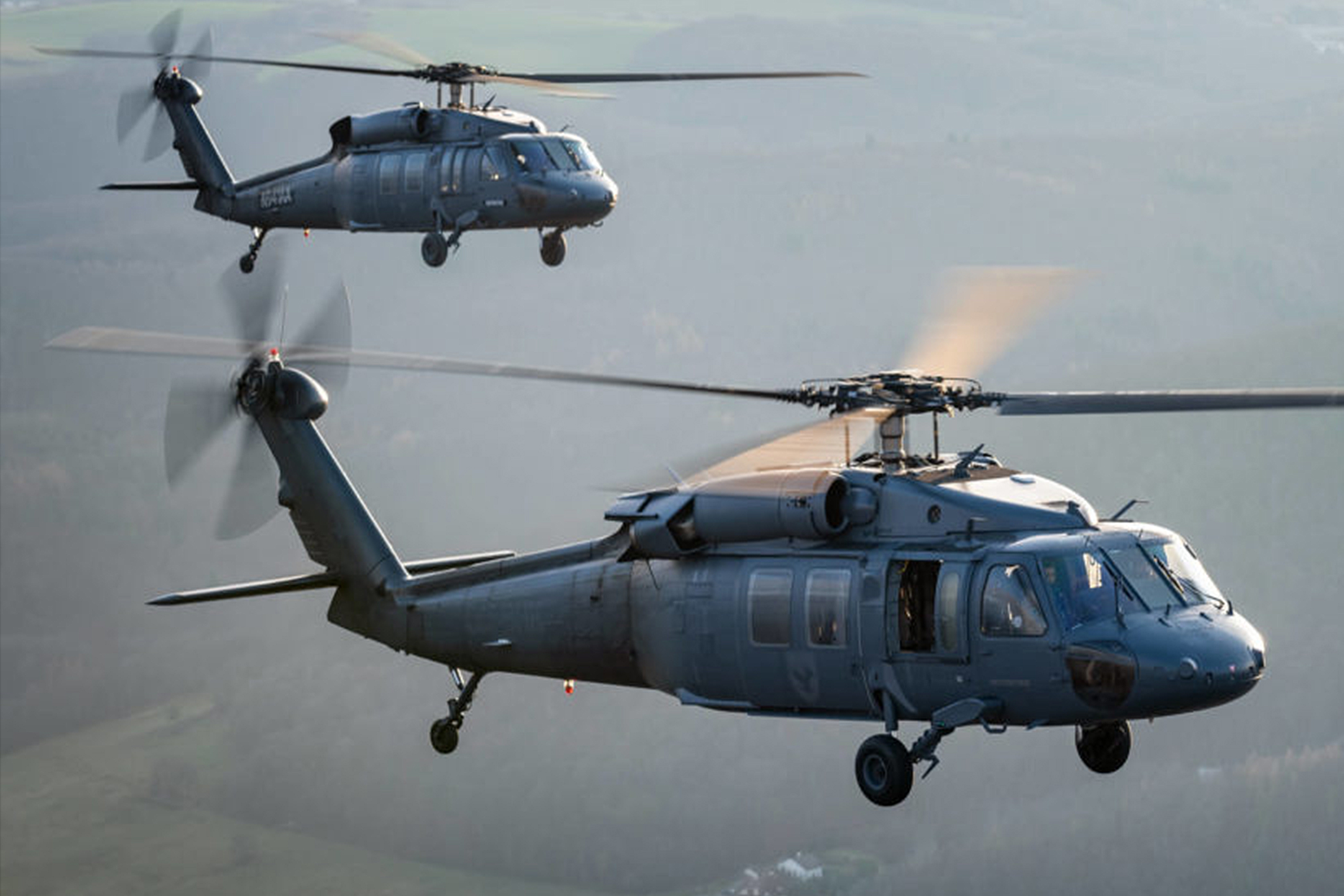Maintenance and Upkeep for UH 60 Helicopters
Maintenance and Upkeep for UH 60 Helicopters
Blog Article
The Impact of Lasting Practices on the Future of Airplane Operations and Emissions Decrease
As the air travel sector deals with boosting scrutiny over its environmental effect, the fostering of sustainable practices emerges as an important pathway towards future aircraft operations and discharges decrease. Developments in lasting air travel fuels and advancements in crossbreed propulsion modern technologies stand at the center of this improvement, promising significant decreases in greenhouse gas emissions.

Introduction of Lasting Practices
Sustainable methods in aircraft operations include an array of strategies targeted at reducing environmental influence while maintaining functional effectiveness. These practices are vital in the air travel sector's dedication to lessening its carbon footprint and adhering to global ecological requirements. Key efforts include enhancing trip paths to minimize gas usage, enhancing maintenance protocols to make certain aircraft run at peak effectiveness, and applying sophisticated modern technologies such as winglets and lightweight materials that boost the rules of aerodynamics.

Involving and training staff on sustainability methods also play a vital role, promoting a culture of environmental duty within organizations. Generally, the integration of these sustainable techniques not only helps in reducing exhausts yet likewise boosts the long-term viability of the air travel market, guaranteeing it fulfills the needs of both customers and regulatory bodies while adding to global sustainability objectives.
Ingenious Fuel Alternatives
Many innovative fuel choices are becoming crucial solutions to reduce the aeronautics industry's dependence on standard nonrenewable fuel sources. Amongst these alternatives, Sustainable Aeronautics Fuels (SAFs) have actually gotten considerable attention as a result of their prospective to decrease lifecycle greenhouse gas exhausts by up to 80% compared to standard jet gas. SAFs are originated from various feedstocks, including waste oils, agricultural residues, and even algae, making them a flexible choice for the sector.
Another promising alternative is hydrogen fuel, which, when used in gas cells, produces only water vapor as a by-product. This zero-emission potential presents a substantial possibility for decarbonizing flight operations, specifically for short-haul trips and local airplane. Additionally, electric propulsion systems are being explored, leveraging battery innovation to power airplane. While existing battery capability limits variety and payload, recurring innovations might quickly provide electric trips sensible for details applications - uh 60.
Last but not least, biofuels stemmed from biomass are being examined, supplying a renewable option that can be combined with traditional fuels. Jointly, these cutting-edge gas alternatives stand for an important action toward achieving a sustainable aeronautics environment, aligning with global emissions reduction targets and boosting the market's ecological stewardship.
Technical Innovations in Air Travel

How can technological improvements reshape the future of aeronautics? Advancements such as hybrid and electric propulsion systems are at the leading edge, encouraging significant decreases in gas consumption and greenhouse gas exhausts.
Additionally, the implementation of innovative materials, such as lightweight composites, adds to boosted the rules of aerodynamics and gas efficiency. The usage of man-made intelligence and artificial intelligence in trip procedures enhances course planning and decreases gas burn by making it possible for real-time changes based upon weather and web traffic problems. In addition, the advancement of autonomous and from another location piloted aircraft systems stands to revolutionize freight and passenger transport, potentially increasing effectiveness while minimizing human mistake.
Additionally, sustainable aviation technologies, consisting of innovative air web traffic management systems, can enhance procedures and reduce blockage, resulting in lower discharges throughout flight. These innovations collectively represent a standard change in aeronautics, promising a future where sustainability and operational effectiveness are intertwined, thus supporting the market's dedication to reducing its environmental impact.

Regulative Framework and Compliance
Due to the growing focus on ecological stewardship within the air travel industry, the governing framework regulating aircraft procedures is evolving to promote sustainable practices. Governing bodies, such as the International Civil Air Travel Organization (ICAO) and various nationwide aeronautics authorities, are presenting strict standards targeted at lowering exhausts and boosting functional performance.
These guidelines often include the adoption of Lasting Aeronautics Gas (SAF), which has actually been acknowledged as a crucial part in attaining reduced carbon footprints. Moreover, conformity with these policies needs airlines to implement functional techniques and sophisticated modern technologies, such as optimized trip paths and improved air website traffic management, to reduce gas usage.
In addition, the enforcement of discharges trading systems and carbon offsetting initiatives is coming to be progressively widespread, engaging airline companies to keep track of and report their exhausts accurately. Non-compliance can lead to significant fines, therefore pushing operators to prioritize sustainability in their service versions.
Inevitably, the evolving regulative landscape not just drives advancement and investment in eco-friendly technologies however likewise promotes a society of liability within the air travel industry. As these structures continue to create, the concentrate on sustainable methods will certainly be indispensable to accomplishing the field's lasting ecological objectives.
Future Fads in Airplane Operations
As the aviation industry adapts to an increasingly rigorous regulatory atmosphere, future patterns in airplane operations are established to concentrate on cutting-edge remedies that check this better improve sustainability and efficiency - uh 60. Key developments will likely consist of the adoption of advanced air website traffic management systems, which make use of real-time information and expert system to enhance trip courses, lowering gas consumption and discharges
Another considerable trend is the enhanced combination of sustainable aviation gas (SAFs) These choices to conventional jet fuel, obtained from renewable resources, can substantially lower lifecycle greenhouse gas discharges. The market's commitment to SAFs will likely speed up as airline companies collaborate with fuel producers to guarantee accessibility and cost-effectiveness.
Furthermore, the push in the direction of electrification and hybrid propulsion systems is obtaining energy. Arising airplane layouts will incorporate these innovations, using quieter and extra efficient operations, particularly for short-haul flights.
Verdict
The fostering of lasting air travel fuels, coupled with developments in electric and hybrid propulsion systems, is necessary for minimizing lifecycle greenhouse gas discharges. Optimizing flight courses and embracing innovative modern technologies add to a quieter and much more eco pleasant aviation industry.
Innovations in sustainable aeronautics fuels and advancements in crossbreed propulsion technologies stand at the leading edge of this improvement, encouraging significant decreases in greenhouse look at here now gas exhausts.Many cutting-edge gas options are arising as essential services to decrease the aeronautics sector's reliance on conventional fossil gas - uh 60. Amongst these choices, Sustainable Air travel Gas (SAFs) have actually acquired considerable attention due to their prospective to reduce lifecycle greenhouse gas exhausts by up to 80% contrasted to standard jet fuels.Another substantial fad is the raised assimilation of lasting air travel fuels (SAFs) The fostering of lasting aviation gas, coupled with innovations in hybrid and electrical propulsion systems, is necessary for decreasing website link lifecycle greenhouse gas discharges
Report this page